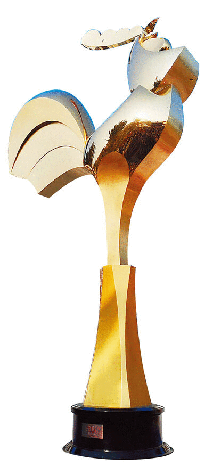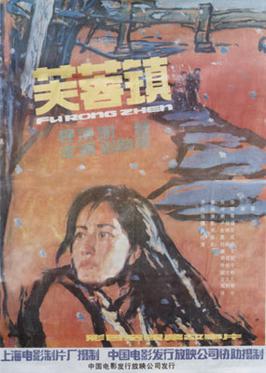1990s
| Year | Number | Film | Country |
|---|---|---|---|
| 1996 | 19th [1] | The Bewitching Braid \大辫子的诱惑 | |
| 1995 | 18th [1] | Heaven & Earth \天与地 | |
| 1994 | 17th [1] | Once Upon A Time In China III\狮王争霸 | |
The Hundred Flowers Award for Best Co-produced Film was first awarded by the China Film Association in 1994.
| Year | Number | Film | Country |
|---|---|---|---|
| 1996 | 19th [1] | The Bewitching Braid \大辫子的诱惑 | |
| 1995 | 18th [1] | Heaven & Earth \天与地 | |
| 1994 | 17th [1] | Once Upon A Time In China III\狮王争霸 | |

The Golden Rooster Awards are film awards given in mainland China. The awards were originally given annually, beginning in 1981. The name of the award came from the year of the Rooster in 1981. Award recipients receive a statuette in the shape of a golden rooster, and are selected by a jury of filmmakers, film experts, and film historians. The awards are the Chinese equivalent to the American Academy Awards.

China Huabiao Film Awards, also simply known as Huabiao Awards, is an annual awards ceremony for Chinese cinema. Named after the decorative Chinese winged columns (huabiaos), The Huabiao Awards were first instituted in 1957 as the Ministry of Culture Excellence Film awards. Between 1958 and 1979, no awards were given. In 1994, the awards were renamed "Huabiao." The ceremony is held in Beijing, and is the highest government honor in the film industry. Along with the Golden Rooster Awards and Hundred Flowers Awards, these are known as China's three main film awards.

Hibiscus Town is a 1986 Chinese film directed by Xie Jin, based on a novel by the same name written by Gu Hua. The film, a melodrama, follows the life and travails of a young woman who lives through the turmoil of the Cultural Revolution and as such is an example of the "scar drama" genre that emerged in the 1980s and 1990s that detailed life during that period. The film was produced by the Shanghai Film Studio.
Zhang Xuejing, stagename Niu Ben (牛犇) is a Chinese film actor.

The Hundred Flowers Awards are, together with the Golden Rooster Awards, the most prestigious film awards honouring the best in Chinese cinema, as well as Hong Kong cinema and the Cinema of Taiwan. They are classified as the Chinese equivalent of the United States' Golden Globes.
The Hundred Flowers Award for Best Actress was first awarded by the China Film Association in 1962.
The Hundred Flowers Award for Best Actor was first awarded by the China Film Association in 1962.
The Hundred Flowers Award for Best Supporting Actor was first awarded by the China Film Association in 1962.
The Hundred Flowers Award for Best Supporting Actress was first awarded by the China Film Association in 1962.
The Hundred Flowers Award for Best Director was first awarded by the China Film Association in 1962. During 1981-2004, there were no awards presented in the Best Director category.
The Hundred Flowers Award for Best Cinematography was first awarded by the China Film Association in 1962.
The Hundred Flowers Award for Best Original Score was first awarded by the China Film Association in 1962.
The Hundred Flowers Award for Best Art Direction was first awarded by the China Film Association in 1962.
The Hundred Flowers Award for Best Animation was first awarded by the China Film Association in 1962.
The Hundred Flowers Award for Best Chinese Opera Film was first awarded by the China Film Association in 1962.
The Hundred Flowers Award for Best Picture was first awarded by the China Film Association in 1962.
Rickshaw Boy is a 1982 Chinese movie directed by Ling Zifeng, based upon the novel of the same name by Lao She. The film stars Siqin Gaowa, who won a Golden Rooster for her performance, and Zhang Fengyi.
Ding Jiali is a Chinese actress.
Li Baotian is a Chinese actor. Li is a member of China Television Artists Association and China Film Association.
August First Film Studio, or Bayi Film Studio, is the only military film studio in China. Founded on August 1, 1952, it is a comprehensive film studio with the production capacity of feature films, battlefield documentaries, military education films, news documentaries, national defense scientific research films, TV dramas and other films. The unit's main business area is located in Fengtai District, Beijing, and consists of Wang Zuo Film and Television Base and Hubei Film and Television Base.